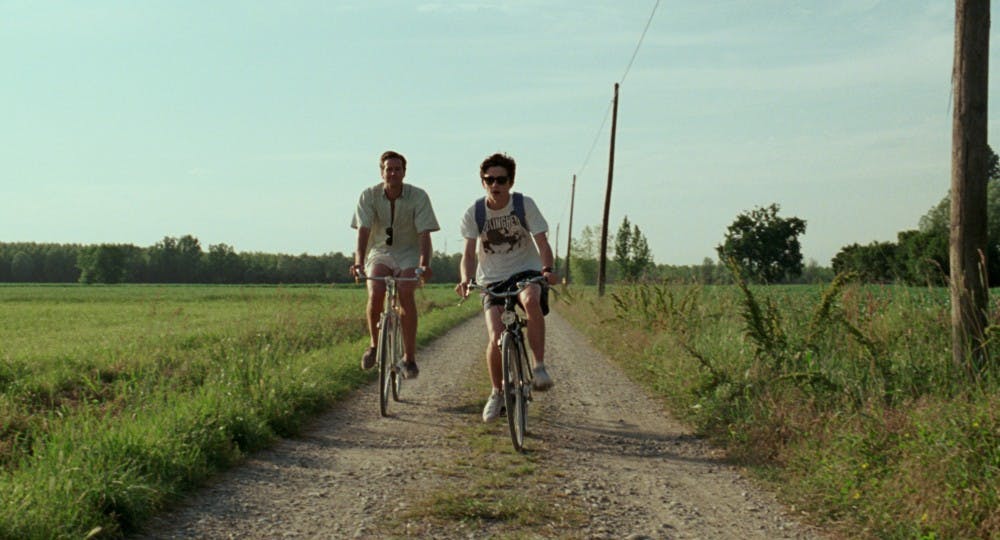Set “somewhere in Northern Italy” in the early ‘80s, Director Luca Guadagnino’s “Call Me by Your Name” effectively makes you nostalgic for memories and emotions that you didn’t even realize you had. The indie production snagged four Academy Award nominations, including one for Best Picture, and has also received attention across numerous other award circuits this season.
The film is a character study of 17-year-old Elio Pearlman, played by Timothée Chalamet, as he falls in love with Oliver, a summer houseguest and doctoral student played by Armie Hammer. The film is a subtle exploration of sexuality and a journey of introspection for Elio as he constantly alternates between obsession and indifference, or between confidence and self-loathing.
It is a love story. More importantly, it is a bisexual love story, devoid of tragedy and trauma. This is new. It is not often that powerful queer stories are featured at all in mainstream media, and it is even less common for these stories to have a happy ending.
What is so beautiful about the film is that even though it is a queer love story, regardless of your age, race, gender or sexuality, it’s impossible to not find something to relate to in this film. It is a story of summer, first loves and desire. Of Italy, art and music. Of sexual awakenings, identity and self-discovery.
The film effortlessly captures the comfortable lull of long summer days. It is in these quiet moments filmed deep in the Italian countryside when the film truly blossoms. Long, uninterrupted shots devoid of dialogue allow the viewer to become truly immersed in the film. The absence of a traditional plot and the use of picturesque scenery and a carefully curated soundtrack tells the narrative and further allows the film to feel less like a movie and more like an extension of reality.
In addition to important decisions made regarding the screenplay, the cinematography in this film is nothing short of a masterpiece. Director of Photography Sayombhu Mukdeeprom shot the entire film using a single 35mm lens. This use of the same lens allowed for a higher degree of creativity in other aspects of the film. Scenes that feature dynamic manual focus directs the eye to characters or spaces that otherwise would have been overlooked. This use of selective focus casually makes certain suggestions to the viewer. After the conclusion of a drunken night, Elio and Oliver are both intentionally fuzzy, and this use of focus was almost a visual cue of the hazy and dreamlike state both characters were in.
It’s nearly impossible to do this film justice. Echoing a line of dialogue featured in the film itself, “cinema is a mirror of reality,” and this is proved to be exceptionally true in “Call Me by Your Name.” The space where the screen ends and reality begins is thinly veiled. Go see the movie, and let yourself become lost in a beautiful Italian summer of love and heartbreak.



